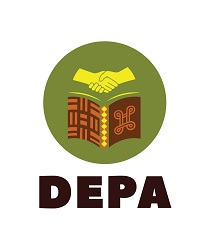
Due Diligence
Due Diligence
All successful projects will need to go through a risk assessment process (Due Diligence). This process assesses the capacity of potential collaborators on research projects. This process is required by our funder, UKRI, and ensures that we are managing the funding entrusted to us in accordance with the UKRI/AHRC terms and conditions. As part of this process, we will require some information about your organisation. The information provided will be used by the project team and The Open University to assess risk and mitigate against it. Examples of the types of information that we will require include, but are not limited to:
- Details of any completed Due Diligence questionnaire for any other UK University.
- Legal status of your organisation.
- Number of full-time equivalent employees or volunteers within your organisation.
- Whether your organisation has a bank account registered in the name of the organisation that can receive funding in Great British Pounds.
- Copies of your organisation’s financial statements, and any external audits if applicable.
- Dates of your most recent financial year, and the income and expenditure recorded in that year.
- Confirmation of the system your organisation has in place to record financial spend. If no accounting software package is used, then a description of the system you use will be required.
- Details of formal cases of fraud or suspected fraud your organisation has been involved with within the last five years. We will require details of how this was managed and resolved.
Ability to Deliver
The organisation should:
- Be able to demonstrate in-house capacity in terms of staff and infrastructure to support and lead excellent research programmes.
- Provide evidence of a commitment to maximising the wider impact and value of its research to the benefit of local economies and society.
- Demonstrate commitment to the principle of open access publication, specifically in relation to projects and outputs funded via GCRF Network Plus awards (recognising institutions may not necessarily be signed up to equivalent UK recognised standards). Costs for open access publishing led by LMIC partners may be included in applications for funding.
- Have sufficient capacity to deliver research and/or other outputs that are appropriate to the wider aims of the Network Plus award and that can be meaningfully recorded and reported as such.
- Demonstrate an ability and commitment to provide appropriate leadership and support to those staff involved with funded research activity.
Governance and Control
The organisation should:
- Demonstrate good governance and control functions including policies and approaches to control risk and mitigate fraud and corruption.
- Have satisfactory processes for preventing, detecting, reporting and responding to allegations of slavery, fraud, bribery and corruption.
- Have satisfactory processes in place that meet research integrity and ethics requirements, including processes for dealing with allegations of misconduct.
- Be subject to appropriate levels of independent audit.
- Demonstrate an ability to support the effective collection, management, analysis and dissemination of data.
Financial Stability
The organisation should:
- Demonstrate that they are financially stable and have robust assurance around managing and accounting for grant funding.
- Have a bank account that is in its legal name and that can be reconciled to the appropriate finance management system.
- Have a basic finance management system that can be used to reconcile the bank account, to record all cash and payments ensuring that all transactions can be individually identified and provides suitable storage for supporting documentation.
- Have satisfactory procedures in place for making payments for per diem, travel advances or review of receipts and subsequent reimbursement of expenses for approved official travel.
Sub-contract Management
Where the Project lead/PI role on the project would involve sub-contracting to third parties, the organisation should:
- ensure there is a policy in place to sufficiently manage sub-contractors and address any associated financial or compliance risks.
